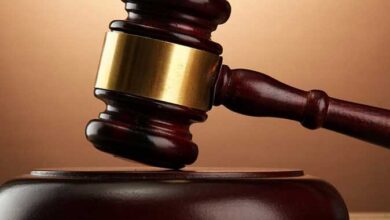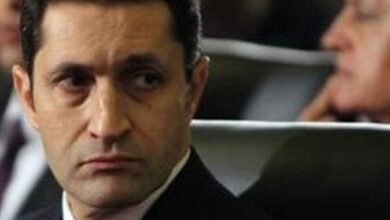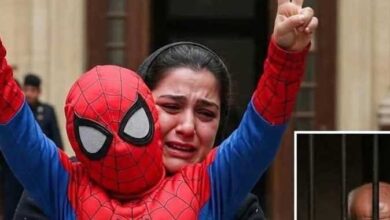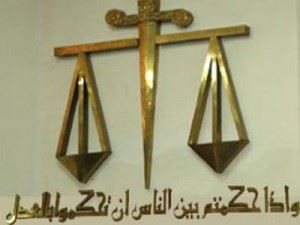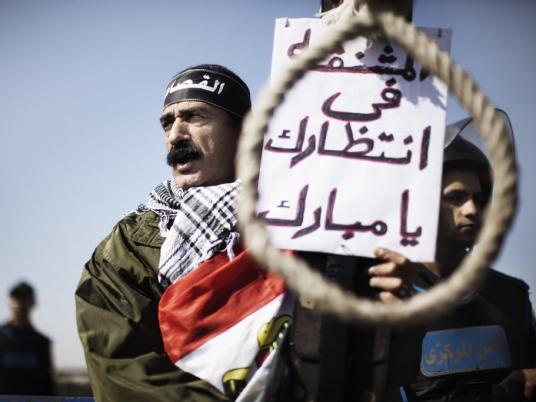
The Mubarak trial was supposed to be a historic moment when a dictator was brought to justice by his long-suffering people, but it has been widely criticized as little more than political theater.
The prosecution is asking for the death sentence for Mubarak, usually carried out by hanging in Egypt. Mubarak's defense team argued that he is still president, and thus can only be tried for treason or in a special court. Mubarak can appeal the verdict if he is found guilty.
Judge Ahmed Refaat announced Wednesday that a verdict would be delivered on 2 June.
Former President Mubarak, former Interior Minister Habib al-Adly and six high-ranking security officers are charged with killing protesters during the 18-day uprising last January and February that ended Mubarak’s 30 year rule. Over 850 people were killed during those 18 days, and thousands were injured.
Mubarak, his sons Gamal and Alaa, and businessman Hussein Salem were also tried for corruption in a different case as part of the same proceedings.
Mubarak turned down a chance to address the court in the last session of the seven-month trial on Wednesday.
"I have no comment," Mubarak told the judge Wednesday. "What the lawyer said is enough."
His two sons, Gamal and Alaa, did not speak at the trial either, leaving their lawyer Farid al-Deeb to make a statement.
The trial, which began in August, has been choppy, with a short investigation period, brief hearings, a three-month hiatus, incomplete testimonies and a speedy ending, lawyers told AFP.
Dozens of Mubarak supporters and opponents gathered outside the courthouse on Wednesday, separated by police. Both sides chanted and held up banners. One man in the anti-Mubarak crowd held a noose to highlight calls for the once all-powerful strongman to face the death penalty.
Mubarak’s former Interior Minister, Habib al-Adly, spoke for an hour and a half, saying the uprising was the result of a foreign plot to destabilize Egypt.
Adly spoke of a “conspiracy” against Egypt, blaming foreigners for the killing of protesters in the uprising that unseated the Egyptian president.
“I reaffirm before you that there were foreign saboteurs who desecrated Egypt's pure land and were supported by internal criminal elements with the aim of undermining Egypt's international and regional standing and attempting to destabilize its political, security and economic stability,” he said.
He blamed Lebanese Shia group Hezbollah and Palestinian Islamist movement Hamas for sending infiltrators to Egypt, and said the plot against Egypt was continuing to this day.
Adly said the plot involved “killing peaceful protesters, storming prisons to free terrorists and criminals, vandalizing public and private properties and burning police officers inside their vehicles.”
Dozens of police officers were also killed during the uprising.
Adly defended himself and the police against the charge of murder, drawing applause from some police officers standing at the back of the courtroom.
Adly offered his condolences to the families of those killed, prompting plaintiffs’ lawyers in the room to shout, “Butcher! Execution!”
In his final statement, Ahmed Ramzy, former director of the Interior Ministry's Central Security Forces (CSF), said that he ordered all the police officers affiliated with the CSF not to carry weapons on 28 January 2011 while dealing with protests.
He told the court that he, as a director of CSF, dealt with 970 protests before 28 January 2011, 546 of which were in Cairo, and nobody filed a complaint against the CSF.
General Adly Fayed, former deputy interior minister, said in his statement that many satellite channels sought to incite the protesters against the police.
He said that Al Jazeera, Al-Arabiya and Al-Hurra, along with other satellite channels, broadcasted videos that showed police beating the protesters.
Fayed added that one channel accused the police of opening up prisons to cause chaos without providing any proof for these claims.
At the hearing, prosecutors told Judge Refaat that the medical wing of Cairo's Tora Prison was ready to receive Mubarak, state television reported.
They said that Tora Prison has the necessary medical facilities to treat Mubarak and that he can be transferred to the prison hospital.
During the trail, Mubarak has been detained at the military-run International Medical Center due to his poor health condition.
Refaat said that he will look into the prosecutors’ request to transfer Mubarak to Tora Prison Hospital and will issue a decision shortly.

